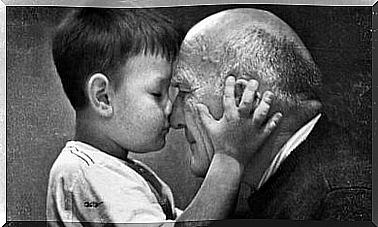Vitamin D Important For Child Development

The baby is constantly evolving both physically and cognitively, and vitamin D plays an important role in this. In this article, we talk about the important role of vitamin D in ensuring a child’s health.
Vitamin D important for child development
Vitamin D is not actually a vitamin, but a fat-soluble precursor of the hormone calcitriol.
A child needs vitamin D for many reasons. Vitamin D is traditionally associated with calcium and skeletal metabolism and thereby strengthening bones and teeth. Vitamin D has also been shown to have an effect on, for example, resistance, respiratory and brain function, and the development of cardiovascular disease, rheumatic diseases and type 2 diabetes.
The human body is also able to produce vitamin D itself, as long as we get enough sunlight. In Finland, however, the amount of vitamin D produced on the skin is often too low even in summer, in which case vitamin D must be taken orally.

Use vitamin D supplements as recommended by your doctor
Vitamin D helps protect the nervous system and bones and ensure overall functioning. Attention should be paid to the intake of vitamin D, as both low and excessive intake of vitamin D cause health problems. Vitamin D is obtained from certain foods, in addition to which, if necessary, synthetic vitamin D preparations can be eaten. The concentration of vitamin D varies depending on its source.
In children, it is especially important to follow the professional’s recommendations for vitamin D dosage. There are a few important things to keep in mind when using vitamin D.
Vitamin D deficiency has been linked to the following diseases, among others:
- Osteomalacia, or softening of the bones
- Rice disease
- Osteoporosis and related fractures
- Infections
- Diabetes
- Cancer
- Circulatory diseases
- Degenerative diseases of the nervous system
Foods rich in vitamin D.
Below are a few examples of foods rich in vitamin D:
- Fish
- Dairy products
- Certain mushrooms
- Liver
- Egg
- Margarines and light spreads
A few facts about vitamins
What exactly are vitamins? They are organic compounds needed in the body’s various developmental processes, which the human body is unable to produce at all or not enough, and which must therefore be obtained from food or synthetic preparations.
Each vitamin has a specific function, a few examples of which are given below:
- Vitamin D helps in the development and maintenance of teeth and bones. Vitamin D is obtained from fish, milk and eggs, for example. The child should eat these foods in abundance.
- Vitamin A is important for vision and bone growth. Milk, liver, oranges and dark leafy vegetables are good sources of vitamin A.
- Vitamin C helps in the healing and recovery processes of the body. Vitamin C is found in citrus fruits, peppers, broccoli and kiwi.
- Vitamin B is essential for energy production. Meat, eggs, fish, seafood, and whole grains are good options to ensure your vitamin needs.

Sunlight
Nature offers many excellent benefits to the human body. One of the most important of these is sunlight. Doctors therefore recommend a daily 20-30 minute sunlight bath for newborns. According to the recommendations, babies should get sunlight in the morning from 7 to 10 and in the afternoon from 16 to 18. The time spent in the sunlight is individual and always depends on the child.
It is not a good idea for babies under 6 months of age to spend time in direct sunlight as it can be harmful to their sensitive skin. At this age, babies get the vitamin D they need from breast milk.
Vitamin D deficiency can occur in both children and adults, and the most effective way to avoid it is a varied diet.









